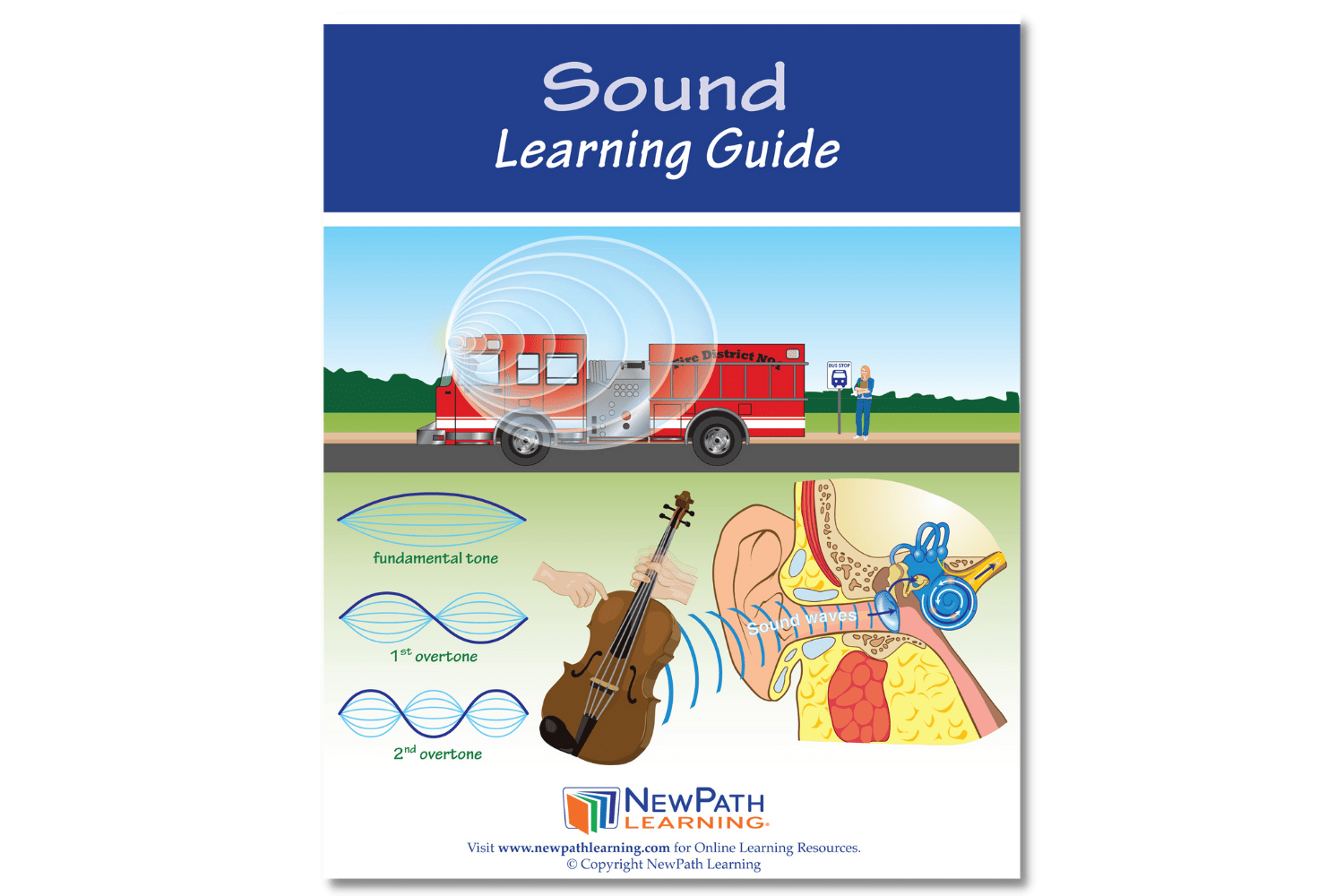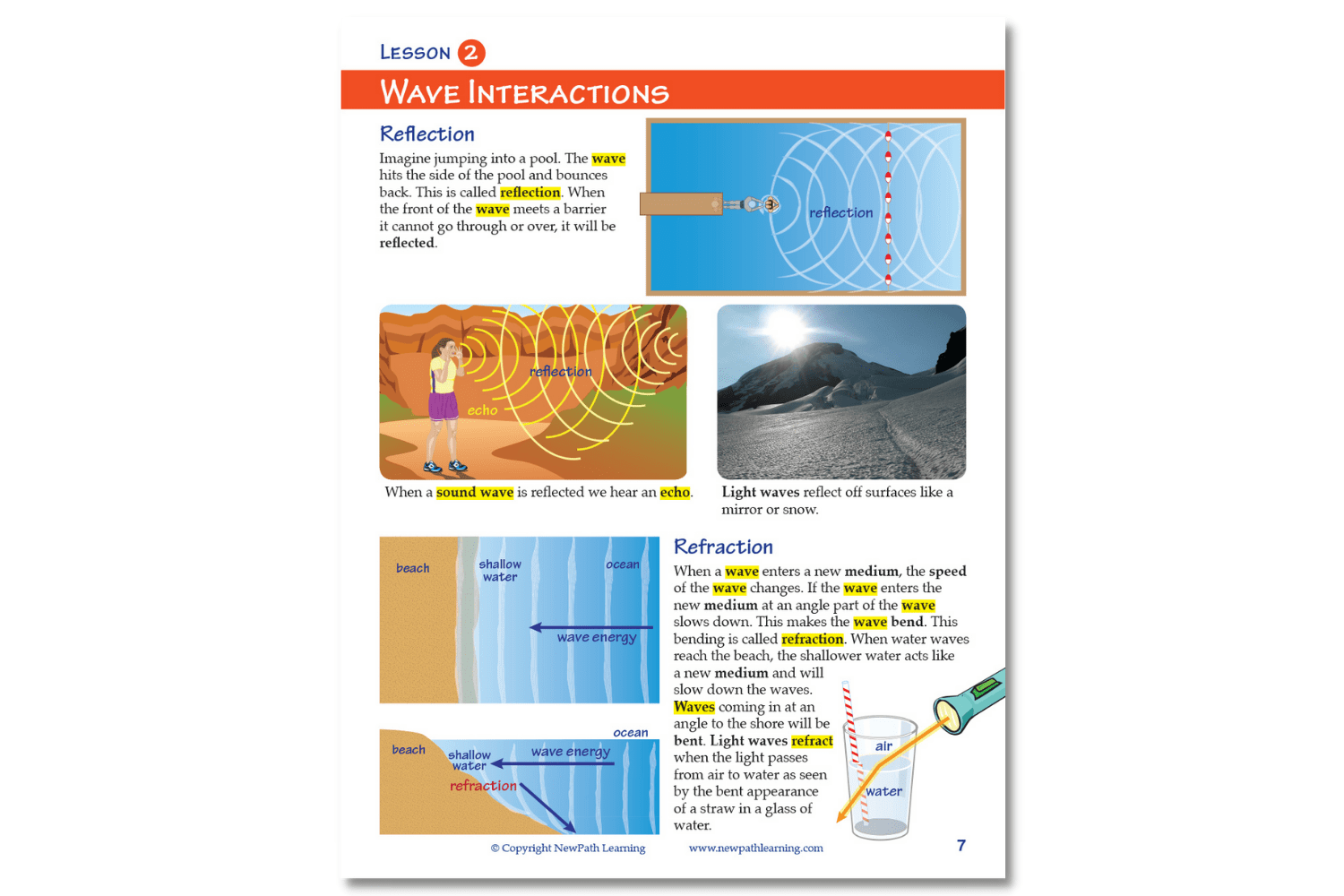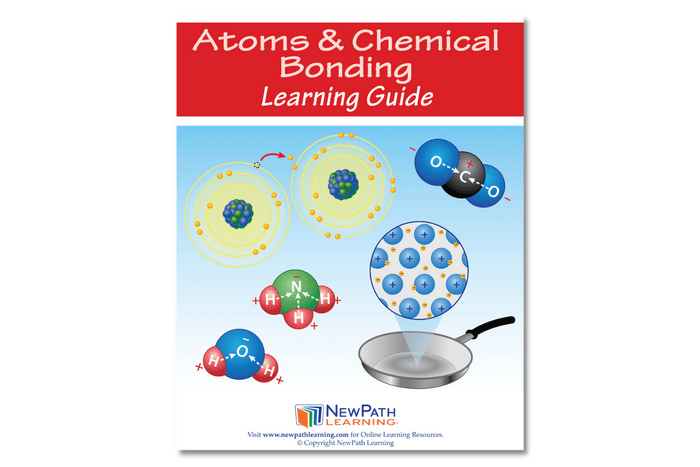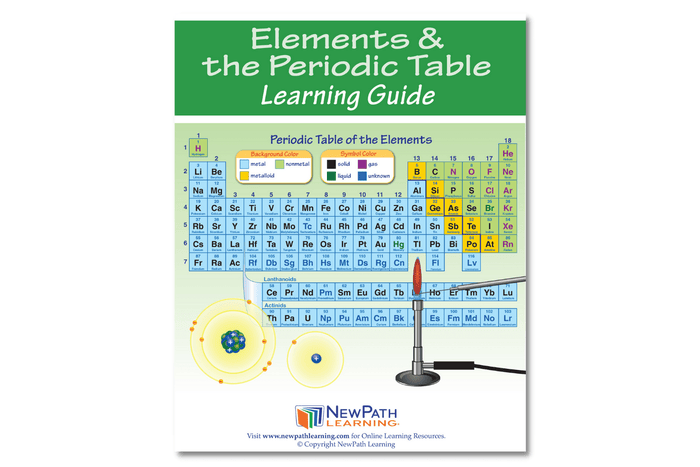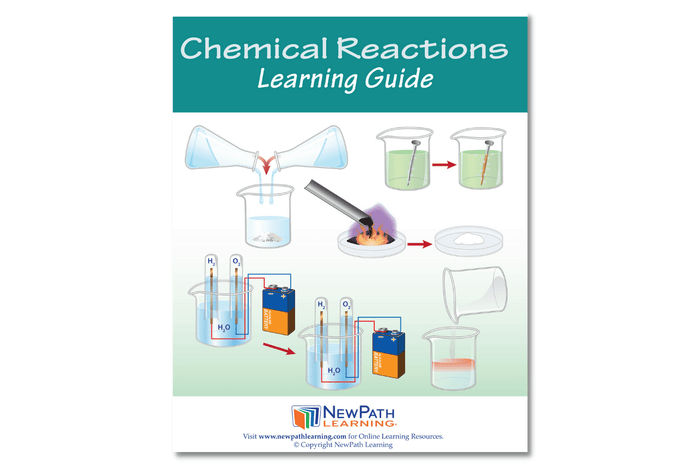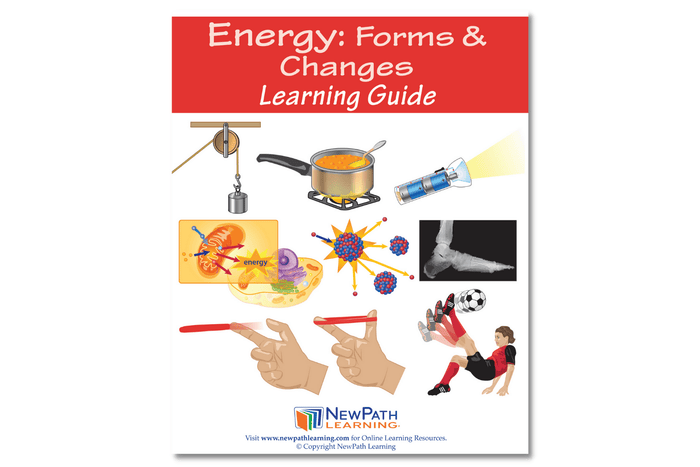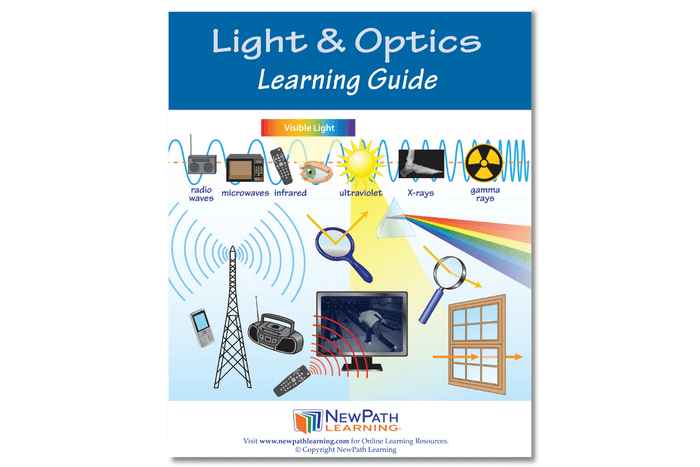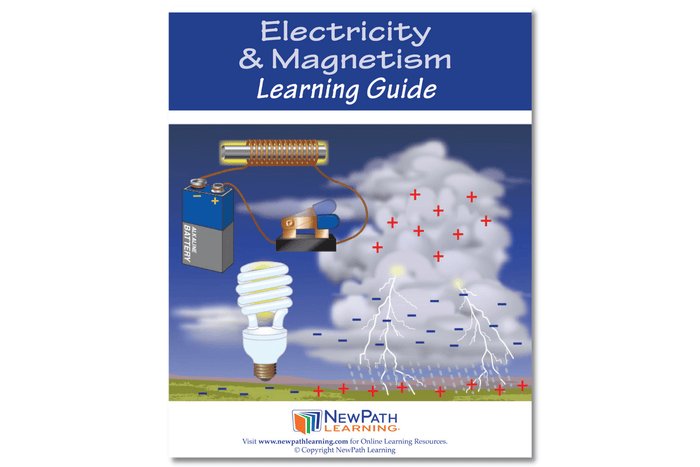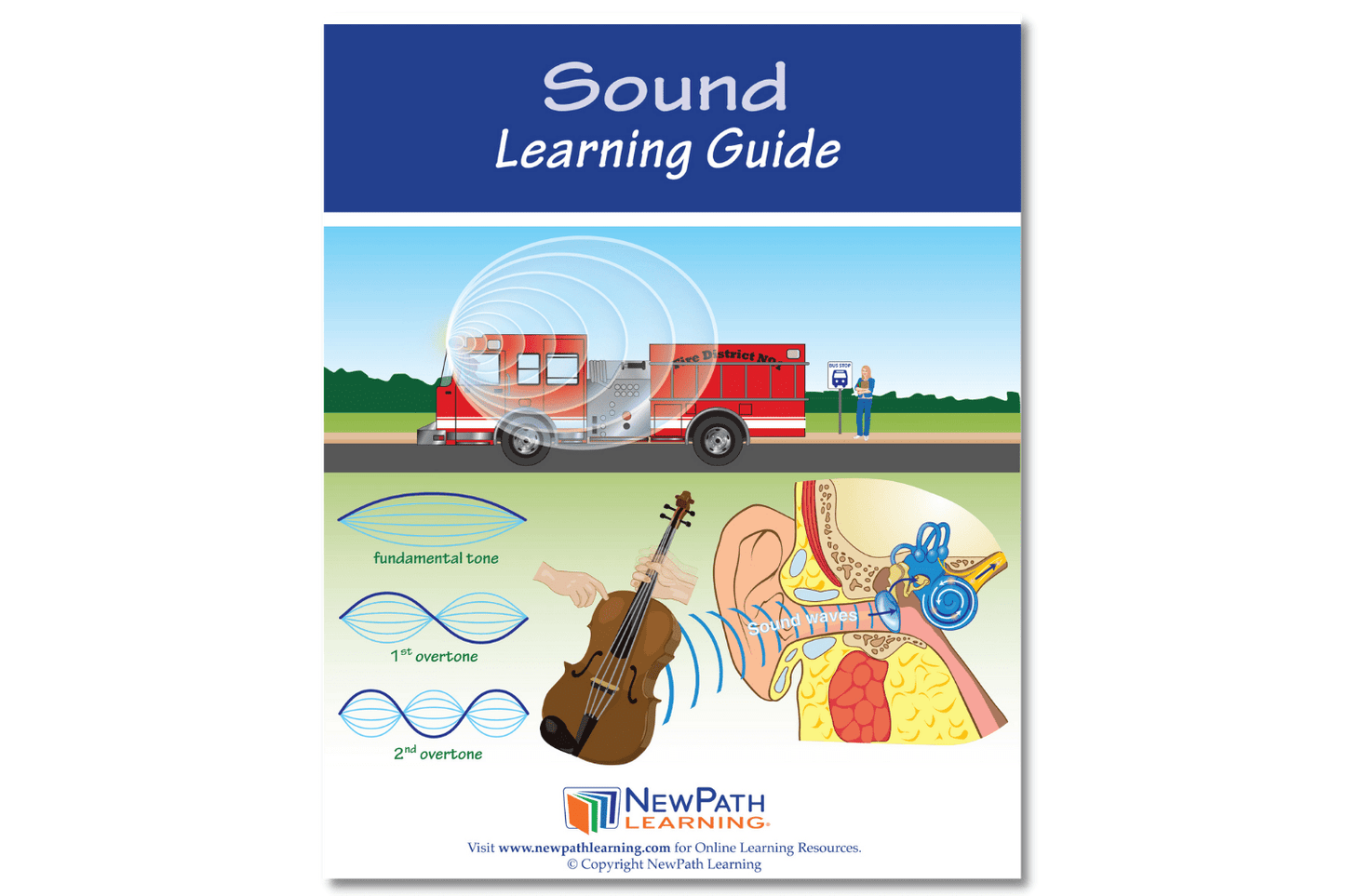
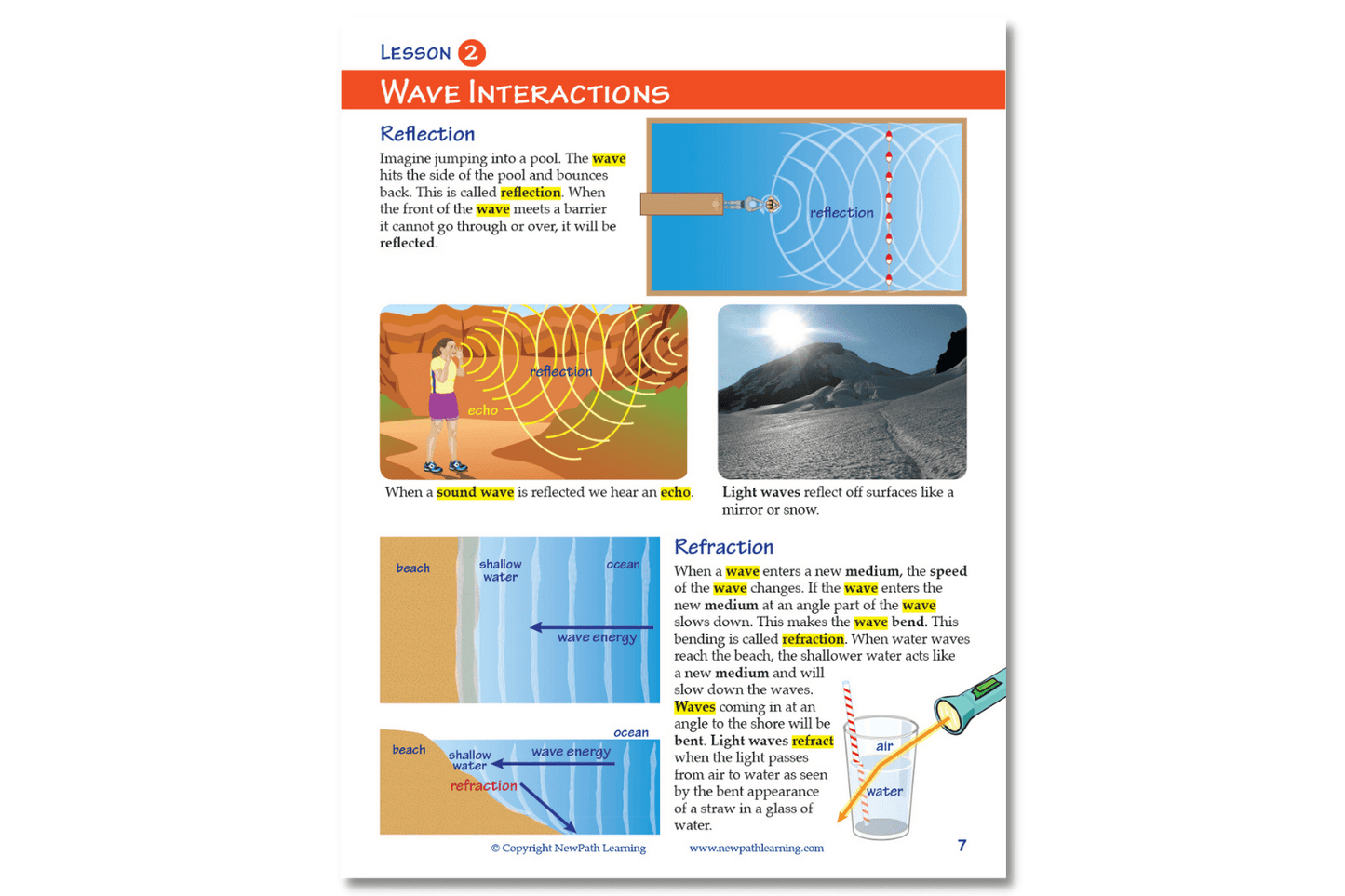
Other Options
| Order Qty |
Price | Qty for Discount |
Discount Price |
Total Savings |
||||
|---|---|---|---|---|---|---|---|---|
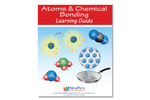
|
NewPath Learning Atoms & Chemical Bonding Learning Guide Item # 21-2010-08 |
|
|
$7.95 | ||||
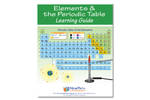
|
NewPath Learning Elements & the Periodic Table Learning Guide Item # 21-2010-06 |
|
|
$7.95 | ||||
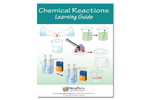
|
NewPath Learning Chemical Reactions Learning Guide Item # 21-2010-07 |
|
|
$7.95 | ||||
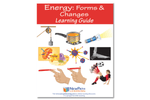
|
NewPath Learning Energy: Forms & Changes Learning Guide Item # 21-2010-02 |
|
|
$7.95 | ||||
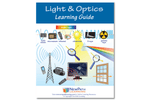
|
NewPath Learning Light & Optics Learning Guide Item # 21-2010-09 |
|
|
$7.95 | ||||
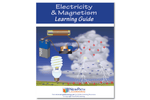
|
NewPath Learning Electricity & Magnetism Learning Guide Item # 21-2010-10 |
|
|
$7.95 | ||||
Additional Details
The NewPath Learning Sound Learning Guide turns the complex topic into an easy-to-learn, visually captivating, and engaging guide page by page! In the NewPath Learning Guide, you'll find self-directed readings, easy-to-follow illustrated explanations, guiding questions, inquiry-based activities, a lab investigation, key vocabulary review, and assessment review questions along with a post-test. The NewPath Learning Guide allows students to write directly in them and is designed for Grades 6-10.
This 44 page NewPath Learning Sound Learning Guide covers the following topics:
- Introduction to Waves
- Waves Length & Frequency
- Wave Interactions
- Sound Waves
- Aspects of Sound
- Doppler Effect
- Hearing Sound
- Musical Sounds
- Practical Applications of Sound
- Vocabulary Review
Be confident knowing the NewPath Learning Guide covers Middle School Next Generation Science Standards.
Standards
Middle School (Grades 6, 7, 8) NGSS Correlations
| STRAND | NGSS.MS-PS. | PHYSICAL SCIENCE |
| TITLE | MS-PS4. | Waves and Their Applications in Technologies for Information Transfer - Students who demonstrate understanding can: |
| PERFORMANCE EXPECTATION / FOUNDATION | MS-PS4-1. | Use mathematical representations to describe a simple model for waves that includes how the amplitude of a wave is related to the energy in a wave. |
| PERFORMANCE EXPECTATION / FOUNDATION | MS-PS4-2. | Develop and use a model to describe that waves are reflected, absorbed, or transmitted through various materials. |
| STRAND | NGSS.MS-PS. | PHYSICAL SCIENCE |
| TITLE | MS-PS4. | Waves and Their Applications in Technologies for Information Transfer - Students who demonstrate understanding can: |
| PERFORMANCE EXPECTATION / FOUNDATION | MS-PS4.DCI. | Disciplinary Core Ideas |
| ELEMENT | PS4.A: | Wave Properties |
| INDICATOR | PS4.A:1. | A simple wave has a repeating pattern with a specific wavelength, frequency, and amplitude. (MS-PS4-1) |
| STRAND | NGSS.MS-LS. | LIFE SCIENCE |
| TITLE | MS-LS1. | From Molecules to Organisms: Structures and Processes - Students who demonstrate understanding can: |
| PERFORMANCE EXPECTATION / FOUNDATION | MS-LS1.DCI. | Disciplinary Core Ideas |
| ELEMENT | LS1.D: | Information Processing |
| INDICATOR | LS1.D:1. | Each sense receptor responds to different inputs (electromagnetic, mechanical, chemical), transmitting them as signals that travel along nerve cells to the brain. The signals are then processed in the brain, resulting in immediate behaviors or memories. (MS-LS1-8) |
High School (Grades 9) NGSS Correlations
| STRAND | NGSS.HS-PS. | PHYSICAL SCIENCE |
| TITLE | HS-PS4. | Waves and Their Applications in Technologies for Information Transfer - Students who demonstrate understanding can: |
| PERFORMANCE EXPECTATION / FOUNDATION | HS-PS4-1. | Use mathematical representations to support a claim regarding relationships among the frequency, wavelength, and speed of waves traveling in various media. |
| PERFORMANCE EXPECTATION / FOUNDATION | HS-PS4-5. | Communicate technical information about how some technological devices use the principles of wave behavior and wave interactions with matter to transmit and capture information and energy. |
| STRAND | NGSS.HS-PS. | PHYSICAL SCIENCE |
| TITLE | HS-PS4. | Waves and Their Applications in Technologies for Information Transfer - Students who demonstrate understanding can: |
| PERFORMANCE EXPECTATION / FOUNDATION | HS-PS4.DCI. | Disciplinary Core Ideas |
| ELEMENT | PS4.A: | Wave Properties |
| INDICATOR | PS4.A:1. | The wavelength and frequency of a wave are related to one another by the speed of travel of the wave, which depends on the type of wave and the medium through which it is passing. (HS-PS4-1) |
| INDICATOR | PS4.A:3. | [From the 3–5 grade band endpoints] Waves can add or cancel one another as they cross, depending on their relative phase (i.e., relative position of peaks and troughs of the waves), but they emerge unaffected by each other. (Boundary: The discussion at this grade level is qualitative only; it can be based on the fact that two different sounds can pass a location in different directions without getting mixed up.) (HS-PS4-3) |
| STRAND | NGSS.HS-PS. | PHYSICAL SCIENCE |
| TITLE | HS-PS4. | Waves and Their Applications in Technologies for Information Transfer - Students who demonstrate understanding can: |
| PERFORMANCE EXPECTATION / FOUNDATION | HS-PS4.DCI. | Disciplinary Core Ideas |
| ELEMENT | PS4.C: | Information Technologies and Instrumentation |
| INDICATOR | PS4.C:1. | Multiple technologies based on the understanding of waves and their interactions with matter are part of everyday experiences in the modern world (e.g., medical imaging, communications, scanners) and in scientific research. They are essential tools for producing, transmitting, and capturing signals and for storing and interpreting the information contained in them. (HS-PS4-5) |
| STRAND | NGSS.HS-PS. | PHYSICAL SCIENCE |
| TITLE | HS-PS4. | Waves and Their Applications in Technologies for Information Transfer - Students who demonstrate understanding can: |
| PERFORMANCE EXPECTATION / FOUNDATION | HS-PS4.CC. | Crosscutting Concepts |
| ELEMENT | HS-PS4.CC.1. | Cause and Effect |
| INDICATOR | HS-PS4.CC.1.1. | Empirical evidence is required to differentiate between cause and correlation and make claims about specific causes and effects. (HS-PS4-1) |
| INDICATOR | HS-PS4.CC.1.2. | Cause and effect relationships can be suggested and predicted for complex natural and human designed systems by examining what is known about smaller scale mechanisms within the system. (HS-PS4-4) |
